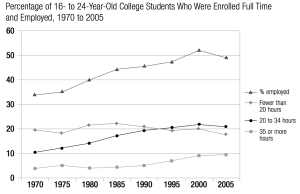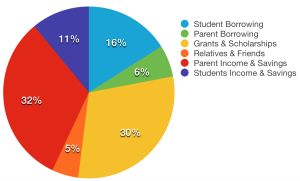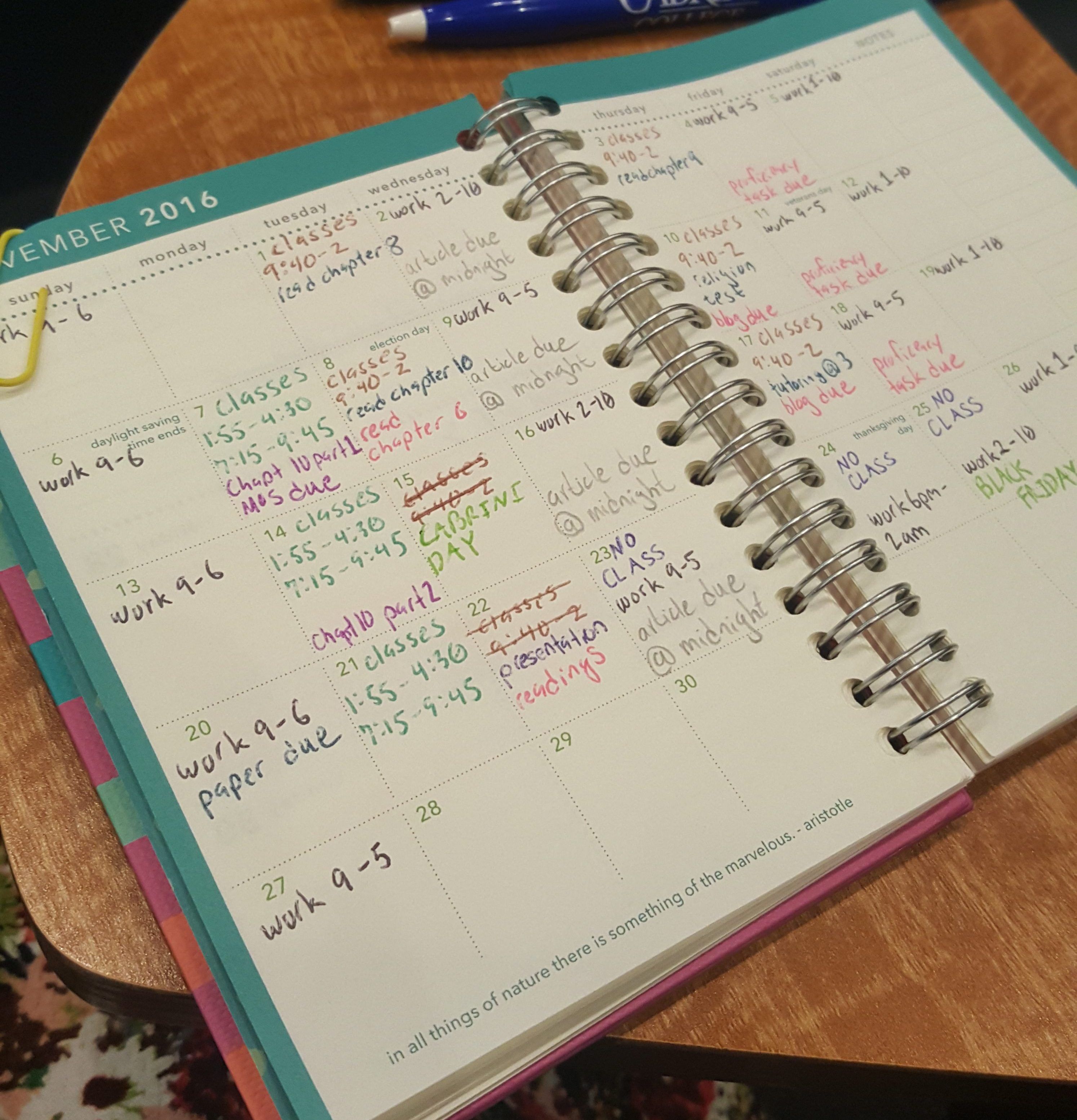College students are typically spending more time working than they used to. As hours worked rises, the time spent studying outside of class declines. But having a job is not an option for many students; it’s a necessity. Time management is essential for students struggling to balance class work with a job in order to pay for school.
According to the National Center for Education Statistics, nearly half of traditional undergraduate students enrolled in classes full-time also worked in 2009, a number up more than fifteen percent from 1970. In 2015, a Georgetown University study revealed that 70 percent of all college students— full-time, part-time and online— are also working.

Many students work to cover the rising cost of tuition.
The Institute for College Access and Success reported in 2014 that 68 percent of college students graduated with an average of $30,000 in loan debt.
In 2015, The Center on Education and the Workforce reported that a student working full-time at the federal minimum wage would earn about $15,00 annually before taxes. While students use to be able to survived by working over the summer, this no longer is enough to cover tuition at most colleges, much less room, board and any other expenses.
College Board reported that the tuition and fees for private, nonprofit four-year schools have increased an average of 309 percent from 1970 to 2016, accounting for inflation.

Sallie Mae’s National Study of College Students and Parents determined how the average American family covered the cost of tuition for the 2014-2015 school year.
The increase in tuition has led many students to get a job in addition to class.
Alexa Piro works in the library to have spending money.
Piro said, “I work at school because it gives me extra cash.”
The Center on Education and the Workforce concluded as well that working more than 15 to 20 hours per week can harm academic performance and educational aspirations.
Shakeyia Kersey, Assistant Director for Employer Relations in the Center for Career and Professional Development, acknowledges working and going to school is not easy, but the benefits are immense.
Working through schools provides the obvious financial asset but also allows students the opportunity to build skills they would not build without having a job.
“It really develops your resume,” Kersey said. “Because whether you are working in a retail environment or if you are working as an intern for an organization, you are developing strong time management skills. You’re telling an employer that you are able to manage a robust schedule.”
Kersey added that a job additionally helps students develop additional critical thinking, communication and customer service skills.
The Center on Education and the Workforce also found that students who go to college while working are more likely to transition to managerial positions with higher wages than people who go straight into full-time work after high school.
Work experience is undeniably an asset for college students launching full-time careers.
One of the most important things a student can do to manage time in college is have a planner.
Kersey stressed that having some type of planner is essential to managing both school work and a job.
She said, “Whether you’re writing it down or you’re putting it in your phone, there has to be a place where you can write out your to do list. And that you can jot down things you need to do as they come up.”




Great article, Coraline! My planner is my lifeline. It helps me stay organized and focused.